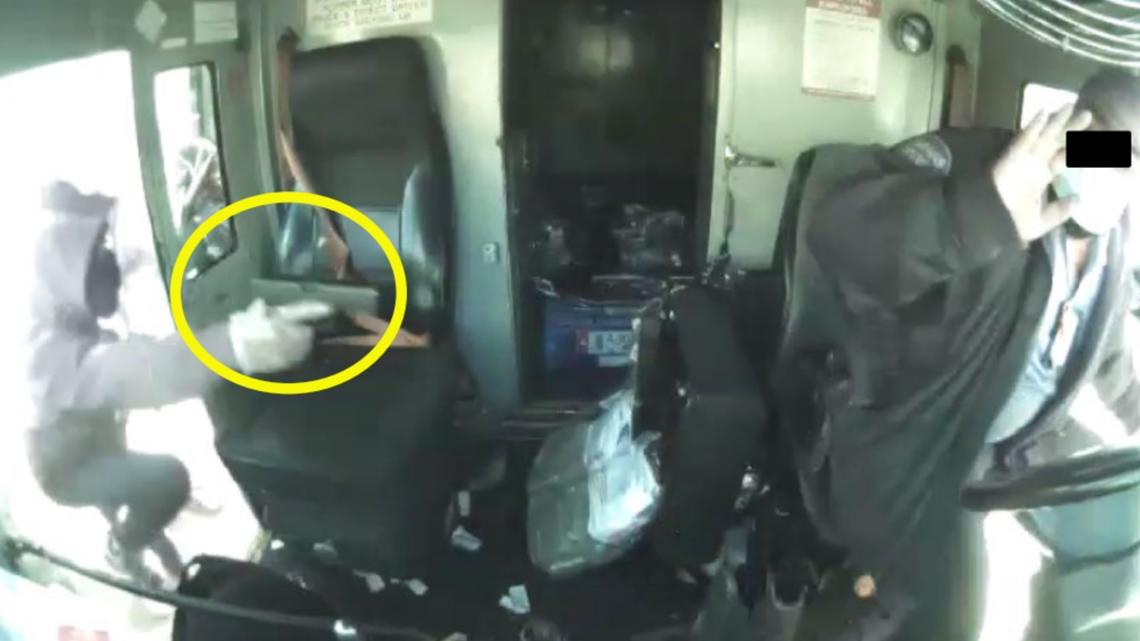Federal prosecutors said William Brock, Anthony Antwon McNair Jr. and Erin Sheffey have attempted to bribe and threaten witnesses not to testify.
WASHINGTON — U.S. Marshals will screen everyone who enters a federal courtroom next week as the government prepares to bring three men to trial for a trio of armored car robberies – the latest in a series of extraordinary measures prosecutors have taken to combat what they’ve described as a “campaign of witness intimidation” in the case.
The three defendants – William Brock, Anthony Antwon McNair Jr., and Erin Sheffey – have been held at the D.C. Jail without bond since their arrest last year. Despite that, according to statements by prosecutors in court this week and in filings over the past two months, they have attempted to bribe and, when that failed, threaten government witnesses with violence in order to persuade them not to testify.
In late July, U.S. District Judge Royce C. Lamberth ordered all three men held in segregated housing at the D.C. Jail and barred them from all calls or visits except to meet with their attorneys. Lamberth’s order came after an emergency filing from prosecutors warning the men and their associates outside the jail had allegedly threatened not just key government witnesses, but also their family members.
“While the Government is taking steps to ensure the safety of its witnesses, the defendants and their accomplices have indicated a startling willingness and ability to reach beyond the walls of the jail to engage in witness tampering,” prosecutors wrote in their filing.
Prosecutors said the threats have targeted two witnesses, both of whom are alleged associates of the defendants. One witness, who is also in custody at the D.C. Jail, has reportedly been the target of nearly a year of threats and bribery attempts by the defendants. Prosecutors said while the witness was being held in lockdown 23 hours a day for his own protection, Brock, who was in the same unit but not under restriction, would repeatedly approach his cell and threaten to kill him. The defendants also allegedly told other detainees at the jail that the witness was “hot,” or a cooperator.
“Unsurprisingly, Witness 1 has reported that he has frequently been the target of violence,” prosecutors wrote.


While still under lockdown earlier this year, prosecutors said another defendant, McNair, approached the witness’ cell on at least eight occasions and offered him up to $30,000 not to testify at trial. When that failed, according to prosecutors, McNair allegedly threatened the witness’ family and said he had associates watching them.
According to court filings, a second witness who is not in custody had to be moved out of D.C. for their safety after two men threatened them with a gun at their home. Prosecutors said the threats came shortly after the witness was identified for the first time to defendants as a likely trial witness.
In response to prosecutors’ concerns about witnesses, Lamberth has allowed significant portions of filings to remain sealed and retroactively sealed the transcripts of two hearings this week at the government’s request. On Monday, he also issued an order prohibiting anyone other than attorneys involved in the case from carrying cellphones or other recording devices into the courtroom. Anyone who wants to observe the trial will be screened by U.S. Marshals and have their electronic devices confiscated until they leave the courtroom.
The cellphone prohibition was requested by prosecutors, who said they were concerned the threats against witnesses would intensify once they appeared to testify.
“Specifically, the Government is concerned that the family, friends, and other associates of the defendants who watch the trial will photograph or videotape the Government’s witnesses to harass, threaten, or harm these individuals,” prosecutors wrote in an Aug. 5 filing.
Lamberth’s order is unusual – observers in D.C. District court are typically warned to turn off their phones, but not prevented from having them – but not without precedent. Earlier this month, another judge in the district discovered observers in the public gallery of a hearing were recording the proceedings. That courtroom now has large signs in bright red lettering warning electronic devices are not permitted inside.
Jury selection in the trial is scheduled to begin Monday morning. Prosecutors said during a hearing this week they expect their case to take up to two weeks and involve as many as 40 witnesses. Attorneys for all three defendants said they did not expect to call witnesses.
.png)









 English (US) ·
English (US) ·